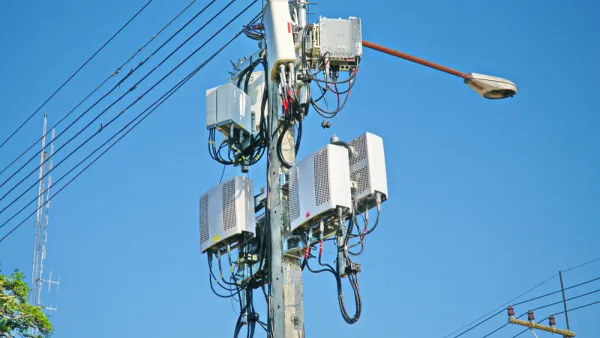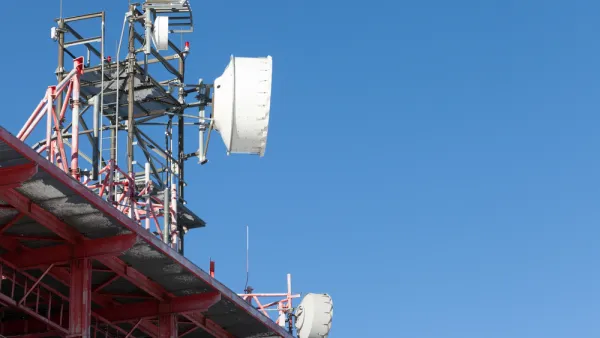Accessing the internet is too expensive for many, not just in rural areas but also in cities.

Expensive internet is not just a rural problem. "The Bronx has only 35.3 percent access, and Manhattan fares only slightly better with 35.6 percent access; Clark County, Nevada, home to Las Vegas, has 39.1 percent access," Clare Malone writes for FiveThirtyEight. The fact that in much of America less than half the population has access to the internet at home is an issue of equity, "Without that knowledge and exposure, a person is likely to be further marginalized in economic and educational opportunities, caught in a cycle of literal and metaphorical disconnection," Malone writes.
Cities are looking for ways to make the internet more affordable for their citizens, but it's difficult to bring down prices in an industry where companies like Comcast and AT&T face so little competition. Still, cities like Washington, D.C. are implementing programs to reach out to those who may not be online. "The Connect.DC initiative works to provide computer courses and subsidize internet access and devices in order to bridge a divide that many worry holds back a skills-based economy and diminishes the opportunities of significant parts of society," Malone reports.
FULL STORY: Lots Of People In Cities Still Can’t Afford Broadband

National Parks Layoffs Will Cause Communities to Lose Billions
Thousands of essential park workers were laid off this week, just before the busy spring break season.

Retro-silient?: America’s First “Eco-burb,” The Woodlands Turns 50
A master-planned community north of Houston offers lessons on green infrastructure and resilient design, but falls short of its founder’s lofty affordability and walkability goals.

Delivering for America Plan Will Downgrade Mail Service in at Least 49.5 Percent of Zip Codes
Republican and Democrat lawmakers criticize the plan for its disproportionate negative impact on rural communities.

Test News Post 1
This is a summary

Test News Headline 46
Test for the image on the front page.

Balancing Bombs and Butterflies: How the National Guard Protects a Rare Species
The National Guard at Fort Indiantown Gap uses GIS technology and land management strategies to balance military training with conservation efforts, ensuring the survival of the rare eastern regal fritillary butterfly.
Urban Design for Planners 1: Software Tools
This six-course series explores essential urban design concepts using open source software and equips planners with the tools they need to participate fully in the urban design process.
Planning for Universal Design
Learn the tools for implementing Universal Design in planning regulations.
EMC Planning Group, Inc.
Planetizen
Planetizen
Mpact (formerly Rail~Volution)
Great Falls Development Authority, Inc.
HUDs Office of Policy Development and Research
NYU Wagner Graduate School of Public Service





























